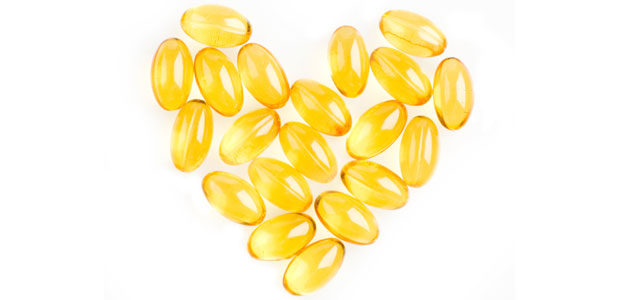Advertisement
Your Heart Loves Omega-3s
Valentines Day every day

Omega-3s are a type of essential fat that the body must obtain from food and cannot produce. Omega-3s are converted in the body into more absorbable forms called eicosapentaenoic acid (EPA) and docosahexaenoic acid (DHA).
The other essential fat is omega-6. Most people get adequate if not too many omega-6s from the diet because of our overuse of omega-6-rich vegetable oils.
Omega-3s are found in flaxseed and flaxseed oils, nuts, seeds, fish and fish oils, and free-range eggs. Here are a few reasons why your heart loves these foods.
They lower the risk of coronary heart disease in men
In a study that followed 45,000 US men for 14 years, each 1 gram per day increase in omega-3s caused a 16 percent reduced risk of coronary heart disease (CHD, which is disease of the actual heart muscle).
And in women, too An earlier study followed more than 76,000 US women for 10 years. Those with the highest omega-3 intakes (1.4 g/day) had a risk of fatal CHD that was 45 percent lower than women with the lowest intakes (0.7 g/day).
Omega-3s reduce inflammation
Increasing omega-3s in the body decreases C-reactive protein, a marker of inflammation that is strongly linked to increased risk of heart attack and stroke.
They reduce all-cause mortality
Consuming EPA and DHA from fish or fish oil supplements has been found to reduce all-cause mortality and cardiac death.
They reduce risk of sudden death
Sudden cardiac death occurs as a result of irregular heart beat, which usually occurs in people with CHD. In one study, sudden cardiac death is 40 to 50 percent lower in those who consume an average of at least 250 mg/day of dietary EPA and DHA compared to those who consume less than 250 mg/day.
They lower triglycerides
High triglycerides are an independent risk factor for heart disease. Increasing your intake of EPA and DHA has been found to lower serum triglyceride levels. In its recommendations, the American Heart Association indicates that an EPA/DHA supplement may be useful in patients with high triglycerides.
They protect against stroke
In people with high cholesterol, EPA supplementation has also been shown to reduce the risk of recurrent strokes.
Support your hard-working heart with omega-3-rich foods and supplements. A EPA/DHA-rich fish oil will nurture your cardiovascular system throughout life.





